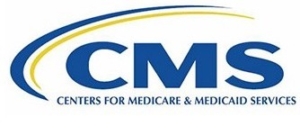COVID-19 Update: March 31, 2020
Coronavirus Update: March 31, 2020.
COVID-19-related developments in Pennsylvania as of 4:00 p.m. on Tuesday, March 31. To receive this daily update directly, sign up for our mailing list at info@pasafetynet.org.
State Update
Governor Wolf
Today, Governor Wolf announced that the President approved part of his request for a major disaster declaration to support state, county, and local responses to COVID-19. Included in the approved requests are reimbursement of up to 75 percent of eligible expenses (staff overtime, supplies, equipment) related to COVID-19 response for all levels of state government and private non-profits that qualify and direct federal assistance for materials and supplies to state and local governments. Staff from the Pennsylvania Emergency Management Agency will be contacting potential applicants in the coming weeks.
The governor also expanded his ‘Stay at Home’ order to include seven more counties to mitigate the spread of the virus: Cameron, Crawford, Forest, Franklin, Lawrence, Lebanon, and Somerset counties until April 30 for all 33 affected counties.
State Daily COVID-19 Briefing
 There are now positive cases of COVID-19 in 60 of Pennsylvania’s 67 counties.
There are now positive cases of COVID-19 in 60 of Pennsylvania’s 67 counties.- Five percent of the total 4,843 cases are affected health care workers while fewer than one percent are nursing home-related.
- The administration continues to monitor the impact of the virus on New York and to prepare Pennsylvania for the expected surge of positive cases by stockpiling supplies, providing regulatory relief for health care professionals, seeking health care volunteers, and monitoring the availability of ICU and nursing home beds throughout the state.
- About 40 percent of the licensed ICU beds in the state are still unoccupied. The Department of Health continues to monitor the availability of ventilators as well.
Department of Health
The Department of Health released interim guidance on licensing and survey activities consistent with the guidance issued by CMS calling for states to prioritize provider survey and certification activities during the pandemic.
DOH also shared a guidance document from CMS, counseling state surveyors on how providers can limit the transmission of the virus and a CMS memo specifically related tor limiting the spread within dialysis facilities.
Department of Human Services, Office of Children Youth and Families
 The Office of Children, Youth, and Families (OCYF) has developed these linked recommendations for entities operating as a Child Residential and Day Treatment Facility.
The Office of Children, Youth, and Families (OCYF) has developed these linked recommendations for entities operating as a Child Residential and Day Treatment Facility.
Department of Human Services, Office of Mental Health and Substance Abuse Services
The Office of Mental Health and Substance Abuse Services (OMHSAS) issued guidance for County Emergency Behavioral Health/Disaster Crisis Outreach and Referral Teams. That guidance can be found here.
In addition, the office shared documents from the Center for the Study of Traumatic Stress related to the psychological effects of quarantine. One for helping homebound children, one directed at Public Health leaders, and one directed at health care providers.
Yesterday the federal Centers for Medicare & Medicaid Services (CMS) published a major update of Medicare and Medicaid regulations that included blanket waivers of a large number of Medicare and Medicaid regulations and requirements. The following is a summary of the major aspects of this new regulation.
Federal Update
New Policies and Waivers From Medicare and Medicaid Regulations and Requirements
 CMS has introduced dozens of changes that involve waivers from current regulations and requirements. A comprehensive, 26-page CMS document describing these changes can be found here and below are the highlights organized into four broad categories:
CMS has introduced dozens of changes that involve waivers from current regulations and requirements. A comprehensive, 26-page CMS document describing these changes can be found here and below are the highlights organized into four broad categories:
- increasing hospital capacity (what CMS calls “hospitals without walls”)
- expanding the health care workforce
- increasing the use of telehealth in Medicare
- reducing paperwork
Increasing Hospital Capacity
- CMS is waiving the enforcement of section 1867(a) of EMTALA to permit hospitals to screen patients at off-site locations to help prevent the spread of COVID-19.
- CMS is waiving certain requirements under the Medicare conditions of participation allow for flexibilities during hospital and psychiatric hospital surges, permitting non-hospital buildings/space to be used for patient care and quarantine sites.
- For the duration of the public health emergency, CMS is waiving certain requirements under the Medicare conditions of participation and the provider-based department requirements to permit hospitals to establish and operate as part of the hospital any location meeting those conditions of participation for hospitals that continue to apply during the public health emergency. This waiver also permits hospitals to change the status of their current provider-based department locations to the extent necessary to address the needs of hospital patients.
- CMS is waiving requirements to permit acute-care hospitals to house acute-care inpatients in excluded distinct part units, such as excluded distinct part unit inpatient rehabilitation facilities or inpatient psychiatric facilities, where the distinct part unit’s beds are appropriate for acute-care inpatients.
- CMS is permitting acute-care hospitals with excluded distinct part inpatient psychiatric units to relocate inpatients from the excluded distinct part psychiatric unit to acute-care beds and units as a result of a disaster or emergency.
- CMS is permitting acute-care hospitals with excluded distinct part inpatient rehabilitation units that, as a result of a disaster or emergency, need to relocate inpatients from the excluded distinct part rehabilitation unit to an acute-care bed and unit.
- CMS is waiving certain physical environment requirements. Provided that the state has approved the location as one that sufficiently addresses safety and comfort for patients and staff, CMS is waiving requirements to allow for a non-skilled nursing facility building to be temporarily certified and available for use by a skilled nursing facility in the event there are needs for isolation processes for COVID-19-positive residents, which may not be feasible in the existing skilled nursing facility structure to ensure care and services during treatment for COVID-19 are available while protecting other vulnerable adults.
- CMS is waiving certain conditions of participation and certification requirements for opening a nursing facility if the state determines there is a need to quickly stand up a temporary COVID-19 isolation and treatment location.
- CMS is waiving requirements to temporarily allow for rooms in a long-term care facility not normally used as a resident’s room to be used to accommodate beds and residents for resident care in emergencies and situations needed to help with surge capacity.
Expanding the Health Care Workforce
 CMS is waiving current requirements to permit physicians whose privileges will expire to continue practicing at the hospital and for new physicians to be able to practice before full medical staff/governing body review and approval to address workforce concerns related to COVID-19. CMS also is waiving requirements about details of the credentialing and privileging process.
CMS is waiving current requirements to permit physicians whose privileges will expire to continue practicing at the hospital and for new physicians to be able to practice before full medical staff/governing body review and approval to address workforce concerns related to COVID-19. CMS also is waiving requirements about details of the credentialing and privileging process.- CMS is waiving the requirement that Medicare patients be under the care of a physician.
- CMS is waiving requirements that a certified registered nurse anesthetist (CRNA) work under the supervision of a physician. CRNA supervision will be at the discretion of the hospital and state law.
- CMS is waiving the requirement that a skilled nursing facility and nursing facility may not employ anyone for longer than four months unless they meet current training and certification requirements. CMS is not waiving the requirement that such facilities ensure that nurse aides are able to demonstrate competency in skills and techniques necessary to care for residents’ needs.
- CMS is waiving the requirement that physicians and non-physician practitioners must perform in-person visits for nursing home residents and will permit visits to be conducted, as appropriate, via telehealth options.
- CMS is temporarily waiving requirements that out-of-state practitioners be licensed in the state where they are providing services when they are licensed in another state. CMS will waive the physician or non-physician practitioner licensing requirements when the following four conditions are met:
- must be enrolled as such in the Medicare program;
- must possess a valid license to practice in the state which relates to his or her Medicare enrollment;
- is furnishing services – whether in person or via telehealth – in a state in which the emergency is occurring to contribute to relief efforts in his or her professional capacity; and,
- is not affirmatively excluded from practice in the state or any other state that is part of the 1135 emergency area.
- This does not have the effect of waiving state or local licensure requirements or any requirement specified by the state or a local government as a condition for waiving its licensure requirements.
- CMS has a toll-free hotline for physicians and non-physician practitioners and Part A-certified providers and suppliers establishing isolation facilities to enroll and receive temporary Medicare billing privileges. CMS is waiving the following screening requirements:
- application fee,
- criminal background checks associated with fingerprint-based criminal background checks,
- site visits,
- postpone all revalidation actions,
- allow licensed providers to render services outside of their state of enrollment,
- expedite any pending or new applications from providers,
- allow physicians and other practitioners to render telehealth services from their home without reporting their home address on their Medicare enrollment while continuing to bill from their currently enrolled location, and
- allow opted-out physicians and non-physician practitioners to terminate their opt-out status early and enroll in Medicare to provide care to more patients.
- CMS has issued blanket waivers of sanctions under the Stark Act. The blanket waivers may be used now without notifying CMS. Individual waivers of sanctions under section 1877(g) of the Act may be granted upon request. For more information, go here and here.
Increasing the Use of Telehealth in Medicare
 CMS is waiving the requirement that physicians and non-physician practitioners must perform in-person visits for nursing home residents and will permit visits to be conducted, as appropriate, via telehealth options.
CMS is waiving the requirement that physicians and non-physician practitioners must perform in-person visits for nursing home residents and will permit visits to be conducted, as appropriate, via telehealth options.- Clinicians can provide virtual check-in services to new and established patients.
- CMS will pay for telephone evaluation and management services provided by physicians and the same services provided by qualified non-physician health care providers. These services may be used for telephone-only evaluation and management services.
- Licensed clinical social workers, clinical psychologists, physical therapists, occupational therapists, and speech language pathologists can perform e-visits via telehealth.
- Limits have been lifted for subsequent inpatient visits, subsequent skilled nursing visits, and critical care consult codes.
- Physicians may provide supervision virtually using real-time audio/visual technology for services that require direct supervision by a physician or other type of practitioner.
- For additional information on new flexibilities in the use of telehealth for Medicare patients, go here.
Reducing Paperwork
 CMS is waiving various requirements that limit and define the use and documentation of verbal orders in a hospital.
CMS is waiving various requirements that limit and define the use and documentation of verbal orders in a hospital.- CMS is waiving reporting requirements when patients who have passed away required soft restraints prior to their death. If restraints were a factor in the death, the usual reporting requirements apply.
- CMS is waiving the current requirements for providing “detailed information” in discharge planning as long as discharging hospitals continue to provide the data patients and their families need to make decisions about appropriate post-acute care. This does not waive the requirement that patients have all of the necessary medical information they need for their post-acute setting.
- While maintaining the discharge planning requirements that ensure that patients are discharged to an appropriate setting with the necessary medical information, CMS is waiving some of the specific components of discharge information acute-care hospitals are ordinarily required to provide.
- CMS is waiving requirements involving the organization and staffing of medical records departments and requirements for the form and content of medical records and is allowing for flexibility in completion of medical records within 30 days following discharge from a hospital.
- CMS is waiving the requirements for hospitals to provide information about their advance directive policies to patients.
- CMS is waiving the requirement that hospitals participating in Medicare and Medicaid must have a utilization review plan that meets specified requirements. CMS is waiving the entire utilization review condition of participation.
- CMS is waiving – for “surge facilities” only – the requirement that the emergency services function operate according to written policies and procedures during surge periods.
- CMS is waiving the requirement that hospital emergency preparedness policies and procedures include specified elements for the emergency preparedness communication plans of hospitals when a hospital is a surge site.
- CMS is waiving requirements for hospital quality assessment and performance improvement programs that address the scope of the program, the incorporation and setting of priorities for the program’s performance improvement activities, and integrated quality assurance and performance improvement programs. The requirement that hospitals maintain an effective, ongoing, hospital-wide, data-driven quality assessment and performance improvement program remains.
- CMS is waiving the requirement that providers must have a current therapeutic diet manual approved by the dietitian and medical staff readily available to all medical, nursing, and food service personnel. Such manuals would not need to be maintained at surge capacity sites.
- CMS is waiving the requirement for nursing staffs to develop and keep current a nursing care plan for each patient and to have policies and procedures in place establishing which outpatient departments are not required to have a registered nurse present.
- Completed 2019 Occupational Mix Surveys, Hospital Reporting Form CMS-10079, for the Wage Index Beginning FY 2022, are due to the Medicare Administrative Contractors (MACs). CMS is granting an extension for hospitals nationwide affected by COVID-19 until August 3, 2020.
- CMS is waiving requirements that govern pre-admission screening and annual resident review (PASARR) to permit states and nursing homes to suspend these assessments for new residents for 30 days. After 30 days, new patients admitted to nursing homes with a mental illness or intellectual disability should receive the assessment as soon as resources become available.
- CMS is waiving many paperwork requirements for home health agencies, skilled nursing facilities, nursing facilities, end-stage renal dialysis facilities, home health agencies, and hospices. Find those changes here (pages 9-16).
- Medicare Administrative Contractors (MACs) and Qualified Independent Contractors (QICs) in the fee-for-service program may allow extensions to file an appeal. CMS is allowing MACs and QICs in the fee-for-service program and the MA and Part D independent review entities (IREs) to:
- waive requests for timeliness requirements for additional information to adjudicate appeals;
- process appeals even with incomplete appointment of representation forms;
- process requests for appeals that do not meet the required elements using information that is available; and
- use all flexibilities available in the appeal process if good cause requirements are satisfied.
Others
- CMS offers stakeholders examples of section 1135 waivers available to individual providers. Find those examples here beginning on page 23.
- CMS is waiving certain patient rights involving copies of medical records, patient visitation limits, and quarantine processes in states that have had more than 50 confirmed COVID-19 cases.
For further information:
To learn more about these changes, you may wish to consult the following resources:
- Summary of the changes
- More detailed descriptions of the changes
- A CMS news release
- A CMS fact sheet
- The interim regulation itself
The following is the latest information from the administration and federal regulators as of 4:30 today.
The White House
President Trump has issued a presidential memorandum to the Secretary of Defense and the Secretary of Homeland Security authorizing the use of the National Guard to provide COVID-19-related services to the states of Connecticut, Illinois, Massachusetts, and Michigan, with the federal government to pay 100 percent of the cost of such a deployment. The federal assumption of 100 percent of this cost expires in 30 days.
Centers for Medicare & Medicaid Services
 CMS has published guidance on exceptions and extensions for quality reporting requirements for acute-care hospitals, prospective payment system-exempt cancer hospitals, inpatient psychiatric facilities, skilled nursing facilities, home health agencies, hospices, inpatient rehabilitation facilities, long-term care hospitals, ambulatory surgical centers, renal dialysis facilities, and MIPS-eligible clinicians affected by COVID-19.
CMS has published guidance on exceptions and extensions for quality reporting requirements for acute-care hospitals, prospective payment system-exempt cancer hospitals, inpatient psychiatric facilities, skilled nursing facilities, home health agencies, hospices, inpatient rehabilitation facilities, long-term care hospitals, ambulatory surgical centers, renal dialysis facilities, and MIPS-eligible clinicians affected by COVID-19.- CMS has published a notice that it is extending the 2019 Merit-Based Incentive Payment System (MIPS) data submission deadline from March 31 to April 30 and also invoking its MIPS automatic extreme and uncontrollable circumstances policy for MIPS-eligible clinicians who do not submit their MIPS data by April 30.
- CMS has published guidance for Medicare Advantage organizations, Medicare Part D sponsors, Medicare-Medicaid plans, and Programs of All-Inclusive Care for the Elderly (PACE) organizations about the reprioritization of PACE, Medicare Part C and D, and risk adjustment data validation activities.
Department of Health and Human Services
The Department of Health and Human Services has posted a news release in which it outlines the steps it has taken and will be taking to accelerate clinical trials for possible COVID-19 vaccines and to prepare for the manufacture of approved vaccines.
U.S. Public Health Service
The U.S. Public Health Service has issued a letter on optimizing ventilator use during the COVID-19 pandemic.
Food and Drug Administration
- The FDA has issued an update outlining the steps it has taken to expedite the review of proposed new tests for diagnosing COVID-19.
- The FDA has updated its FAQ for caregivers who may be working with COVID-19 patients.
- On April 1, 2020, from 12:15 pm –1:15 pm (eastern), the FDA will host a virtual town hall for clinical laboratories and commercial manufacturers that are developing or have developed diagnostic tests for SAR-CoV-2. The purpose of this town hall is to help answer technical questions about the development and validation of tests for SARS-CoV-2 and the recently issued guidance.
Resources to Consult
Pennsylvania Department of Human Services
Pennsylvania Department of Health
Centers for Disease Control and Prevention
To receive this daily update directly, sign up for our mailing list at info@pasafetynet.org.
 Governor Wolf
Governor Wolf Pennsylvania Department of Health
Pennsylvania Department of Health CMS has posted a fact sheet explaining to health care provider
CMS has posted a fact sheet explaining to health care provider  A new update outlines
A new update outlines  The Department of Health and Human Services has provided guidance to states asking them to take immediate action to
The Department of Health and Human Services has provided guidance to states asking them to take immediate action to